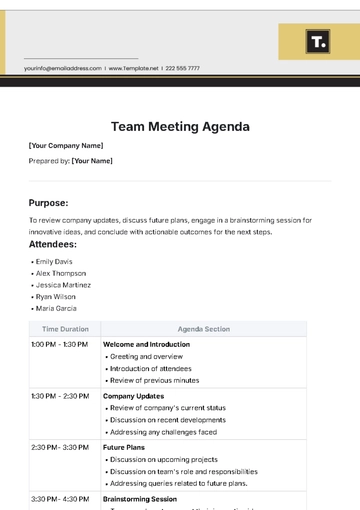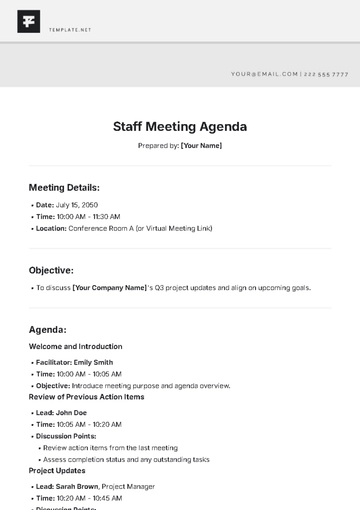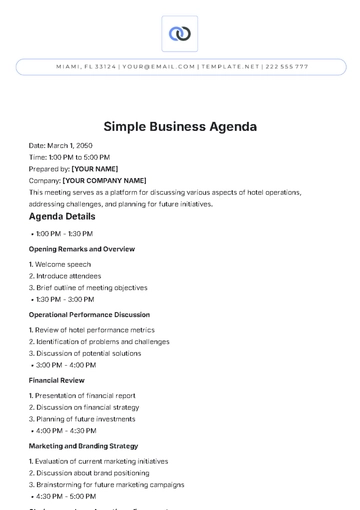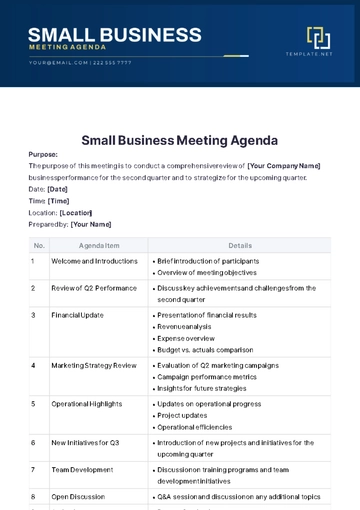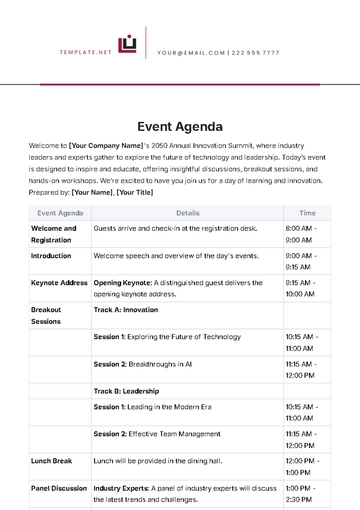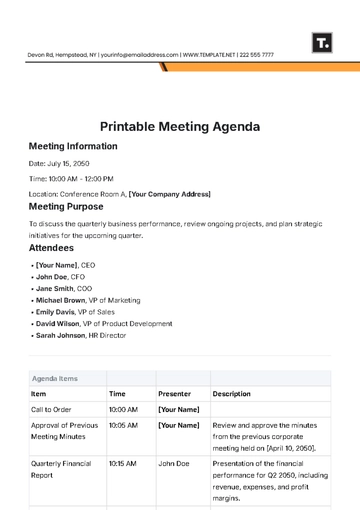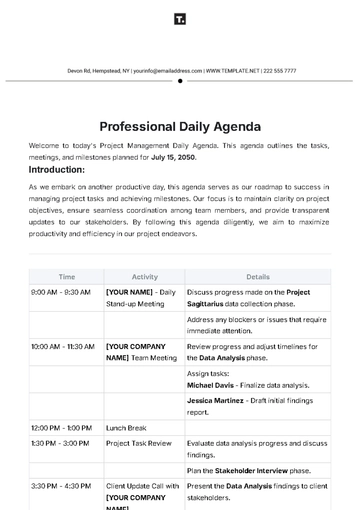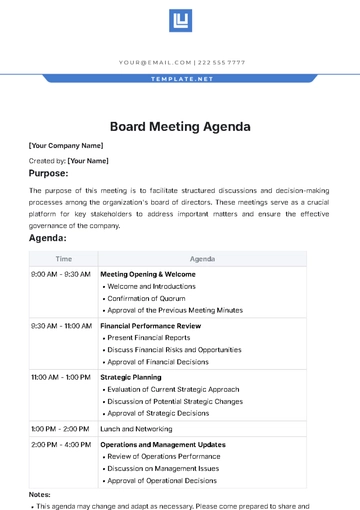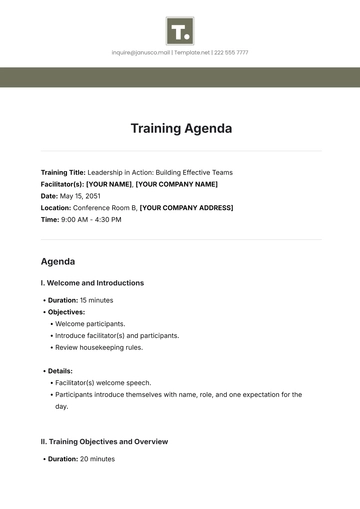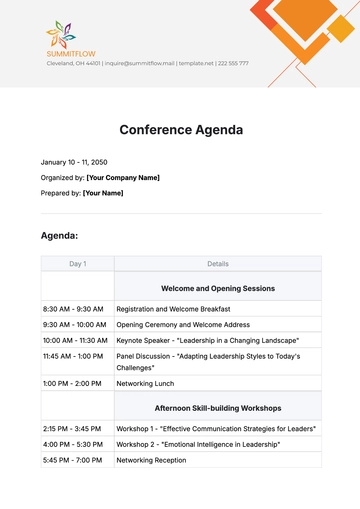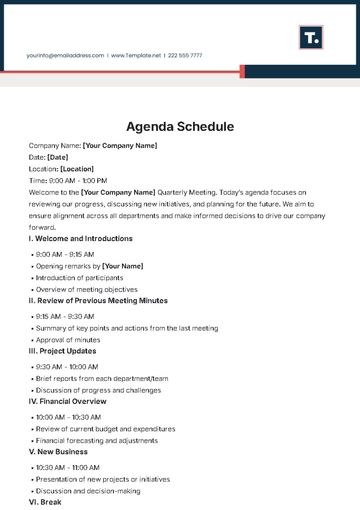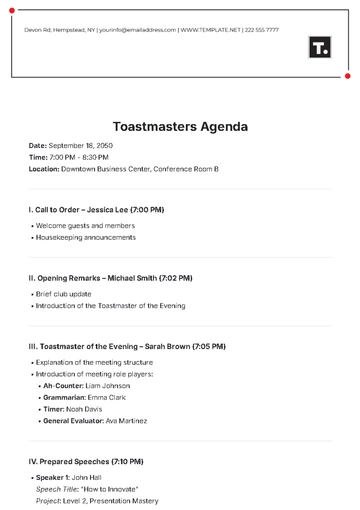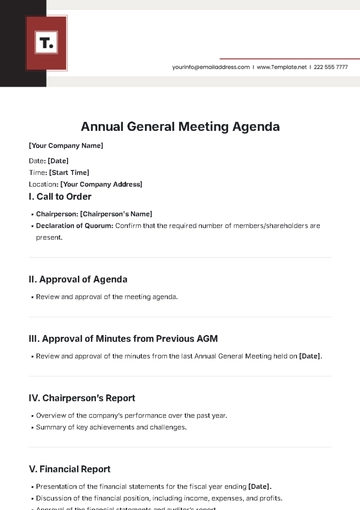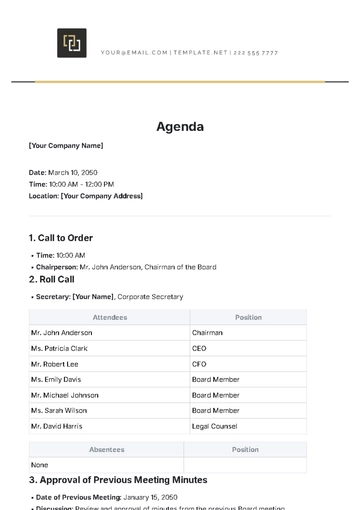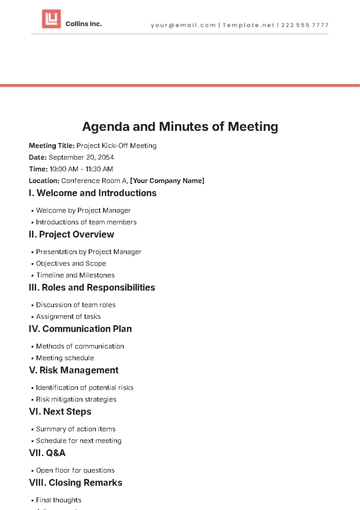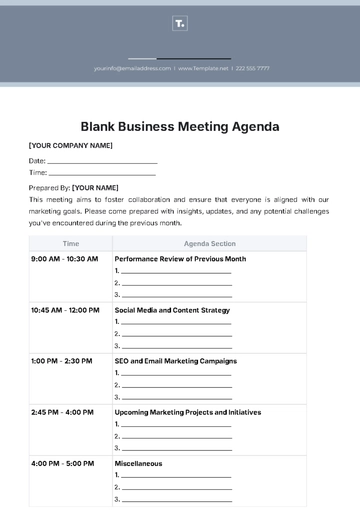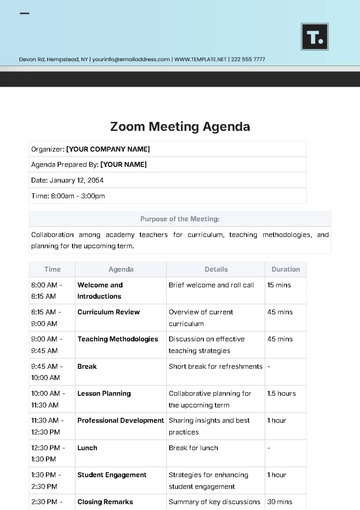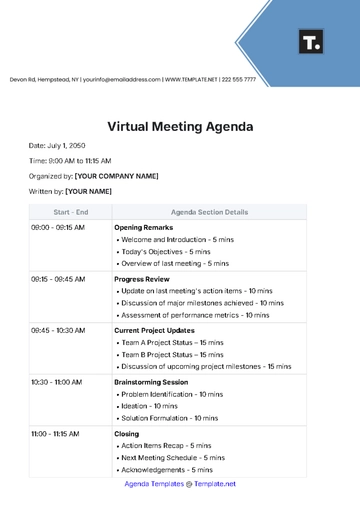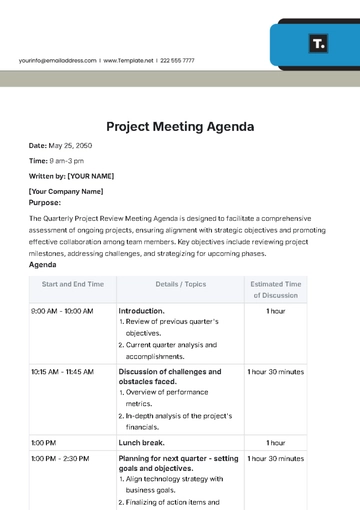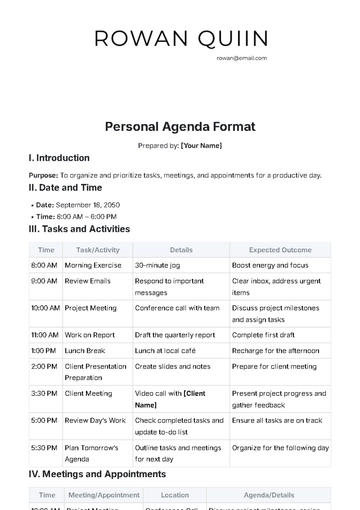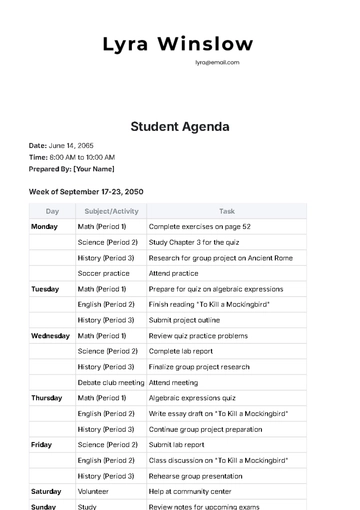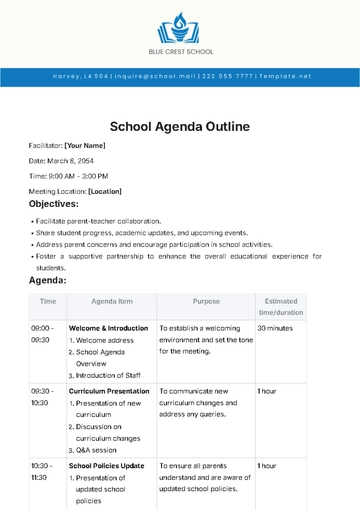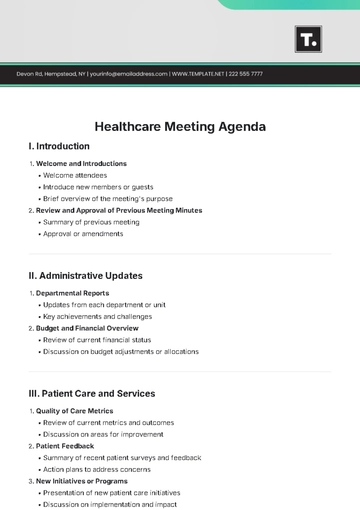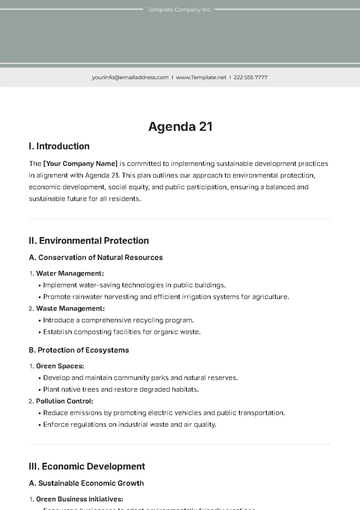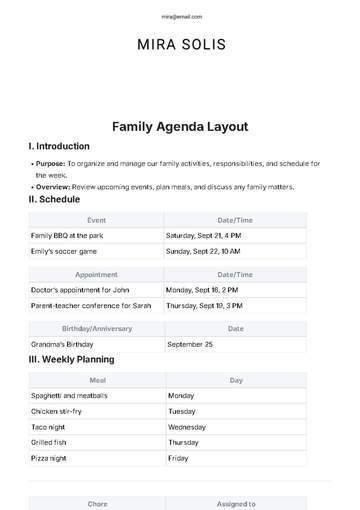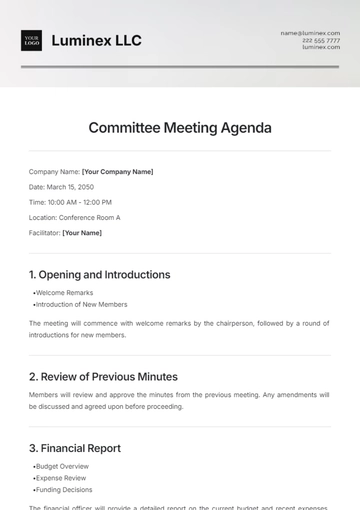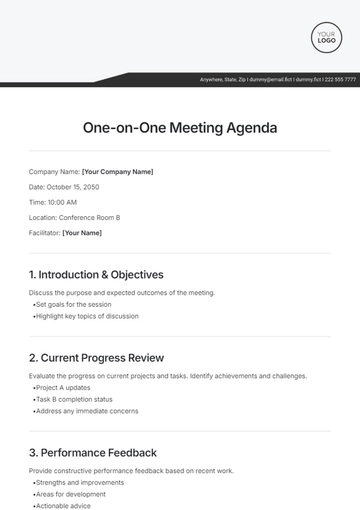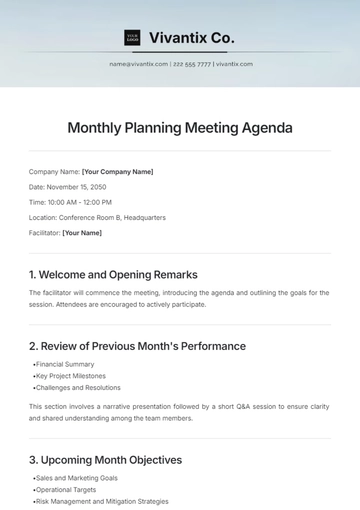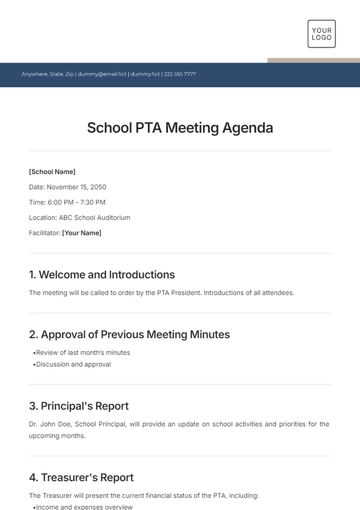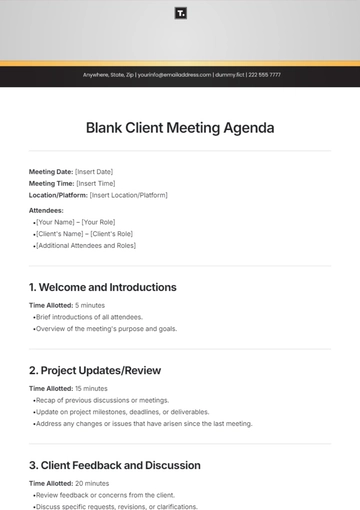Free Agenda Journal Article
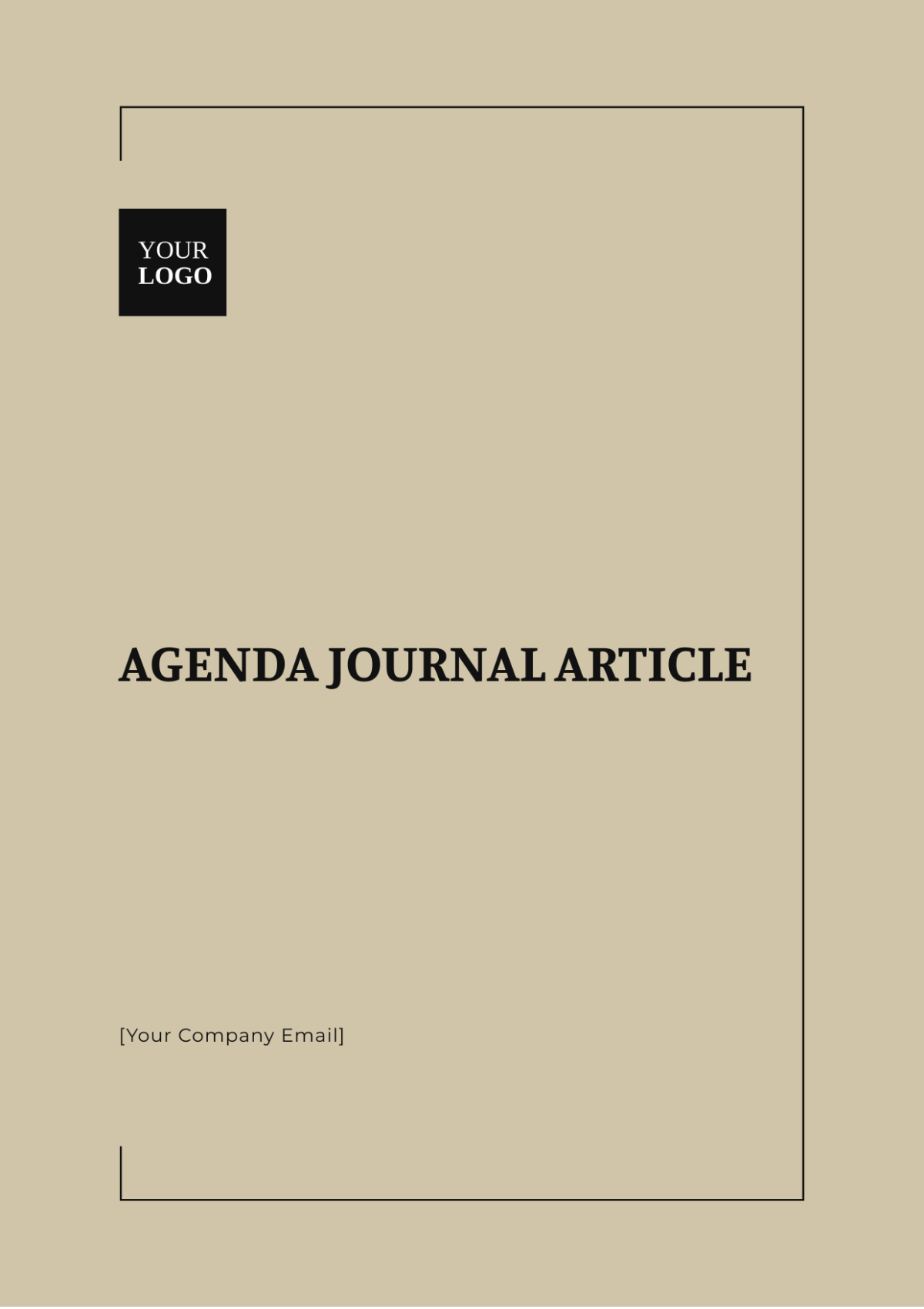
Title: Advancing Strategic Organizational Planning: Key Elements and Best Practices for Effective Agenda Development in the 21st Century
Prepared by: [Your Name]
Date: [Date]
I. Abstract
This article explores the development and implementation of agendas as pivotal tools in strategic organizational planning within the evolving landscape of the 21st century. By integrating a comprehensive review of recent literature with an in-depth case study methodology, this paper elucidates the essential components of effective agendas. The findings emphasize the critical roles of clarity, alignment with organizational goals, and adaptability in designing agendas that enhance decision-making and facilitate action. Implications for practice and future research directions are discussed, with a focus on emerging trends and technologies.
II. Introduction
In contemporary organizational management, agendas have emerged as indispensable instruments for guiding discussions, prioritizing tasks, and ensuring alignment with strategic objectives. Despite their widespread use, the process of crafting and implementing effective agendas remains underexplored, especially in light of recent advancements and shifting organizational dynamics. This paper addresses this gap by providing a detailed examination of the elements and practices that underpin successful agenda-setting in modern organizational contexts.
III. Literature Review
The literature on agenda-setting has evolved significantly, particularly with advancements in digital tools and changing organizational structures. Recent studies highlight the transformative impact of digital agenda management tools on meeting efficiency (Green, 2052). Additionally, research underscores the growing importance of adaptive agendas in response to rapid market changes and technological advancements (Smith & Lee, 2051). Studies have also emphasized the need for inclusive agenda-setting practices that reflect diverse stakeholder perspectives to enhance decision-making quality (Brown, 2053). This review synthesizes these insights to establish a foundation for the current study.
IV. Methodology
This study employs a qualitative case study approach to investigate the development and utilization of effective agendas within contemporary organizations. Data was gathered through semi-structured interviews with key stakeholders from seven forward-thinking companies recognized for their innovative strategic planning practices. Furthermore, a thorough analysis of these organizations' agendas and planning documents was conducted. Data was coded and analyzed thematically to identify prevailing patterns and best practices, with a particular focus on the integration of digital tools and agile methodologies.
V. Results/Findings
The analysis identified several crucial elements of effective agendas:
Clarity and Specificity: Agendas characterized by clarity and specificity enable participants to understand objectives and expectations, resulting in more focused discussions and efficient decision-making.
Alignment with Strategic Goals: Agendas are most effective when aligned with broader organizational strategic goals, ensuring that meetings and actions directly support organizational objectives.
Flexibility: While structure is essential, allowing for flexibility helps organizations adapt to unforeseen issues or opportunities that arise during agenda implementation.
Stakeholder Involvement: Incorporating input from a diverse range of stakeholders enhances the comprehensiveness of agendas and ensures that multiple perspectives are considered, improving decision-making quality.
Integration of Digital Tools: The use of digital agenda management tools and collaborative platforms enhances agenda effectiveness by facilitating real-time updates, feedback, and tracking.
VI. Discussion
The findings suggest that organizations should prioritize the development of clear, strategic, and flexible agendas. Clarity and specificity are critical for maintaining focus, while alignment with strategic goals ensures relevance and impact. Flexibility allows organizations to remain agile in a dynamic environment, and stakeholder involvement enriches the agenda and fosters a sense of ownership. Future research should explore the impact of emerging digital tools and technologies on agenda management, as well as the influence of organizational culture on agenda-setting practices.
VII. Conclusion
In conclusion, effective agendas play a crucial role in strategic organizational planning. By ensuring clarity, strategic alignment, flexibility, and comprehensive stakeholder involvement, organizations can improve their decision-making processes and better achieve their objectives. As organizations navigate an increasingly complex and dynamic environment, the importance of well-crafted agendas in facilitating agile and responsive planning practices will continue to grow. The integration of digital tools and adaptive practices will likely shape the future of agenda-setting in the coming decades.
VIII. References
Brown, A. (2053). Inclusive Practices in Agenda-Setting: Enhancing Decision-Making Quality. Journal of Contemporary Organizational Studies, 40(2), 211-229.
Green, R. (2052). The Impact of Digital Tools on Meeting Efficiency: A New Era in Agenda Management. Digital Management Review, 25(3), 145-160.
Jackson, L. (2051). Strategic Planning and Agenda Alignment: An Integrative Approach. Strategic Management Review, 45(1), 67-82.
Morrison, T. (2050). Leadership and Effective Agenda-Setting in Team Meetings. Leadership Quarterly, 35(4), 234-250.
Smith, J., & Lee, M. (2051). Adaptive Agendas in the Age of Technological Change. Journal of Organizational Innovation, 32(1), 56-73.
- 100% Customizable, free editor
- Access 1 Million+ Templates, photo’s & graphics
- Download or share as a template
- Click and replace photos, graphics, text, backgrounds
- Resize, crop, AI write & more
- Access advanced editor
Organize your thoughts and present your ideas effectively with Template.net’s Agenda Journal Article Template. This editable and customizable template is perfect for outlining agendas in academic journals, making your content clear and structured. Editable in our AI Editor Tool enables you to personalize your articles to meet specific editorial standards and audience expectations.
